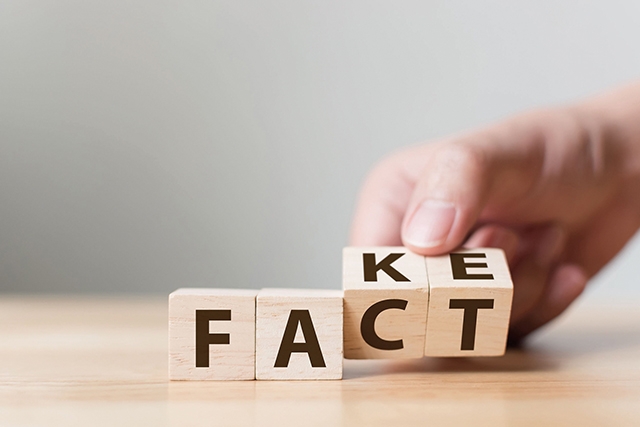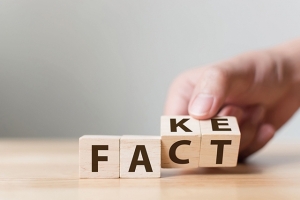Disinformation One of Georgia’s Top Challenges
One of the top problems that Georgia faces is the spread of disinformation, which challenges the integrity of democratic processes, be it elections or everyday public debate.
Non-governmental organization Transparency International (TI) Georgia studied some of the most frequently disseminated narratives of disinformation in the country, as well as their sources and potential impact on Georgian society. According to the organization, the Russian Federation, which occupies 20% of Georgia’s territory, carries out hybrid warfare against the country and one of the most important tools used by Russia in this war is disinformation.
The NGO found that the disinformation that is connected to Russia poses a particular challenge to Georgian society and these disinformation narratives have a clear anti-Western agenda.
“Most messages in the offline space are spread in the Georgian language through certain Georgian media companies and political parties like the Alliance of Patriots, organizations such as the Primakov Georgian-Russian Public Center and far-right nationalist movements like the Georgian March,” it said, adding that Georgia’s response to disinformation as a part of hybrid warfare is insufficient.
“The government is, in fact, unprepared to address hybrid threats. The security service does little in terms of exposing the dissemination of foreign-backed disinformation,” the NGO added.
In addition to the Russian disinformation threats, TI says that government-backed home-grown disinformation is also prevalent in Georgia, which mainly serves narrow political interests and aims to discredit the ruling party opponents.
The organization claims that since at least the Presidential election in 2018, home-grown disinformation has been used as a tool to systematically discredit political opponents in the online space in Georgia.
TI stressed that concerns remain that the Georgian government might introduce anti-disinformation regulation that will challenge the robust legal protection for freedom of expression in Georgia.
The NGO called on all political sides, especially the government, to immediately stop spreading or supporting disinformation and misinformation. According to TI Georgia, a separate anti-disinformation unit or agency should be created within the national security structures with the task of coordinating efforts against foreign-backed disinformation. Public officials need to be well equipped to identify and resist foreign interference.
TI says the 2018 Presidential election in Georgia saw the rise of social media as a powerful platform to influence domestic debate, adding smear campaigns, disinformation and misinformation flourished on the most popular social media network in the country: Facebook.
“While the activities of official candidate and political party pages were largely lawful and legitimate, 20 anonymous pages of various kinds became the main vehicles of negative campaigning online. In this sense, Facebook was used by both political sides to spread disinformation and/or malinformation against political opponents,” the TI study reads.
The NGO added that malign use of social media did not stop with the election and the activity of false media pages grew in the post-election period, even in 2019.
To note, few days ago, Facebook removed 39 accounts, 344 pages and 13 groups for “coordinated inauthentic behavior” in Georgia targeting domestic audiences. In a statement released by Nathaniel Gleicher, Head of Facebook’s Security Policy, it was explained that the people behind this activity used fake accounts to increase engagement on their content.
Gleicher said that the Facebook team identified these accounts through their investigation into suspected coordinated inauthentic behavior in the region and their investigation benefited from public reporting.
"Although the people behind this activity attempted to conceal their identities and coordination, our investigation linked this activity to Panda, an advertising agency in Georgia, and the Georgian Dream-led government," he said.
Head of the ruling Georgian Dream (GD) faction, Mamuka Mdinaradze, wrote on Facebook in response that the ruling party has nothing to do with the group mentioned in the Facebook statement. According to him, the majority of the pages that have been removed seem to be either supporting the GD or sharing negative information about the opposition party the United National Movement (UNM) and its 'satellites'.
Advertising company Panda, whose pages Facebook deleted, released a statement saying they have great resources on the social network that they rent out, but the media has spread "misinterpretation". According to Panda, TV companies Formula One and Channel One were interested in their resources, though Panda said that these "resources were not fully utilized." They said they had also had suggestions from political groups.
The State Audit Office of Georgia said they are studying a statement released by Facebook saying that government propaganda pages, profiles and groups were blocked and deleted. According to the announcement, $316,000 was paid to advertise these pages.
By Tea Mariamidze
Image source: medium.com












